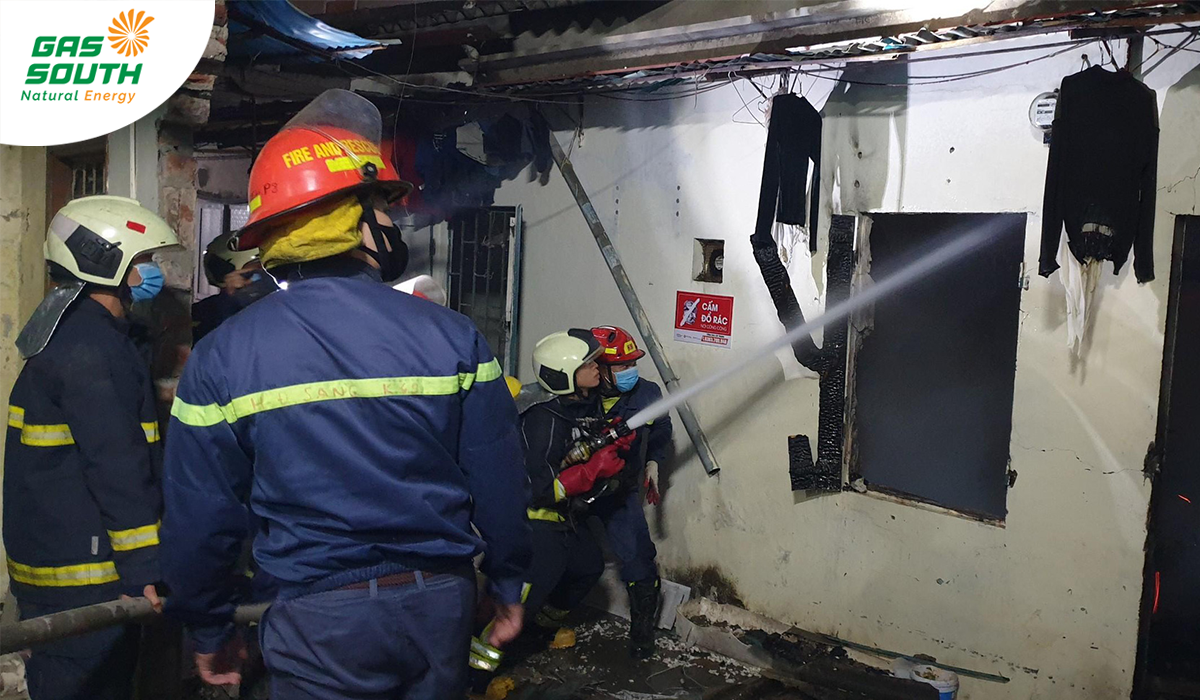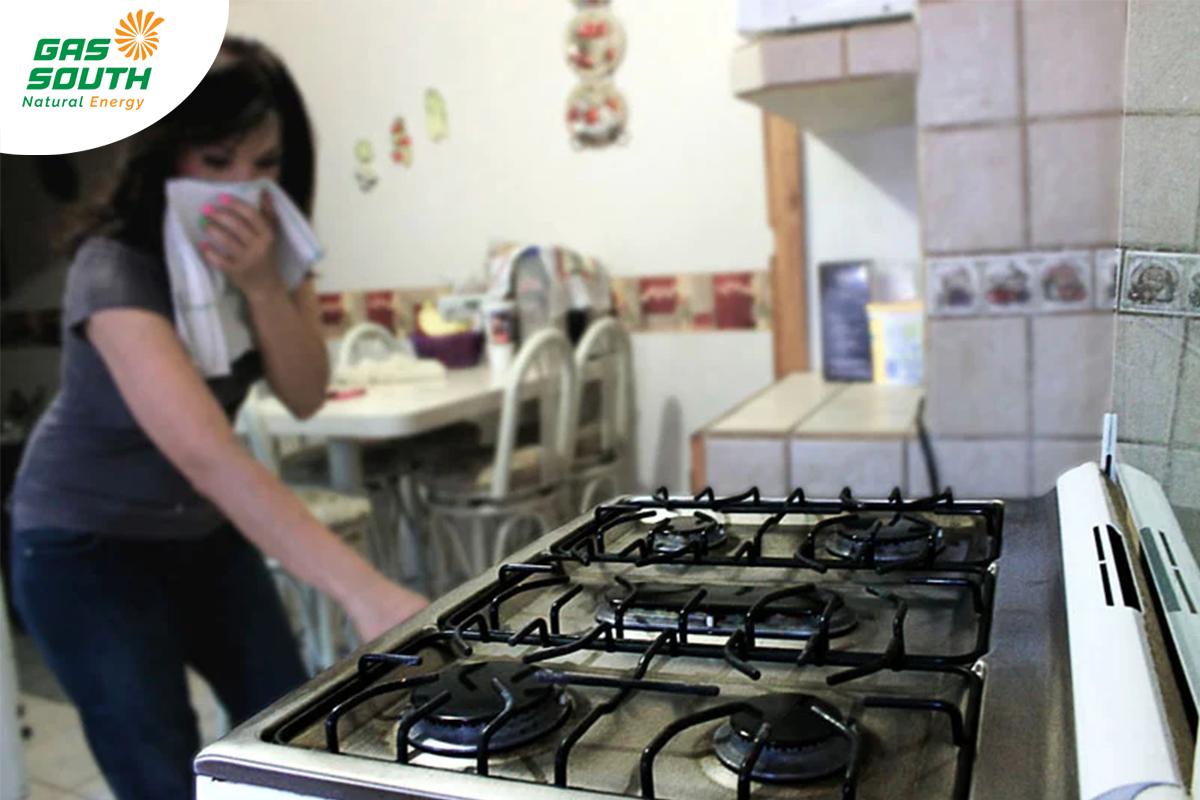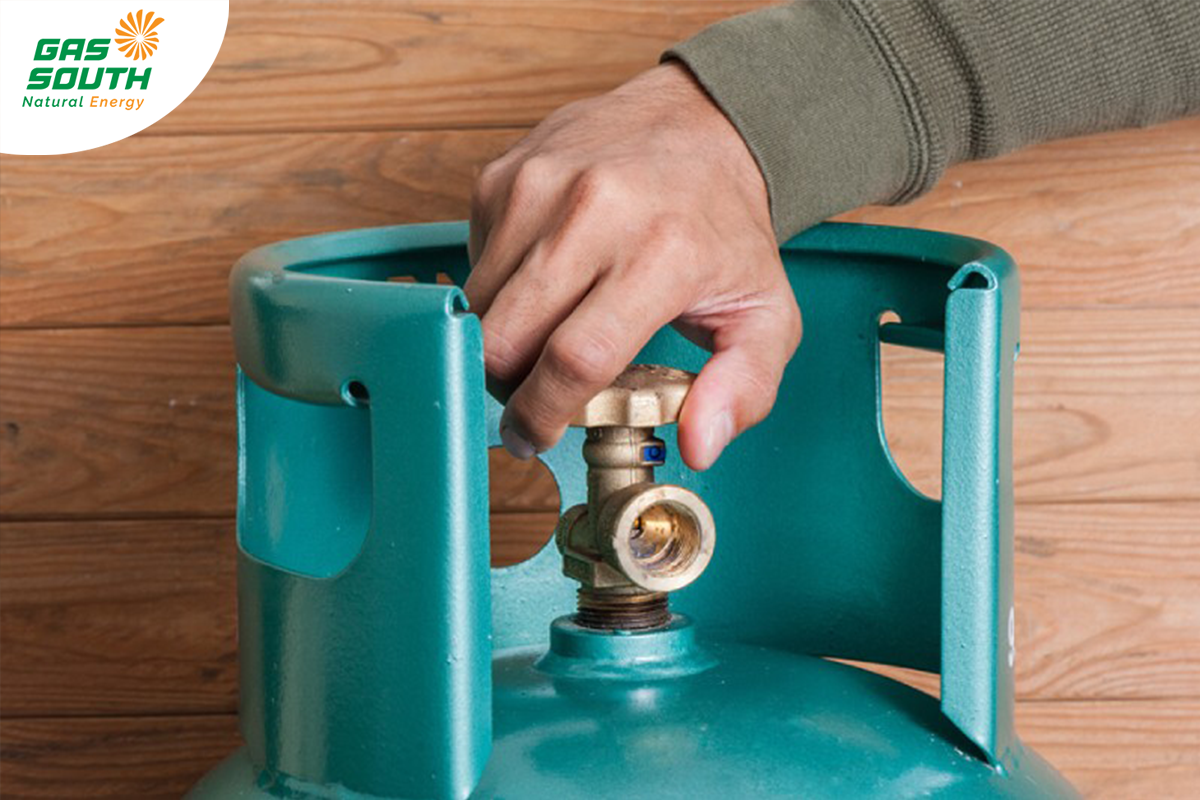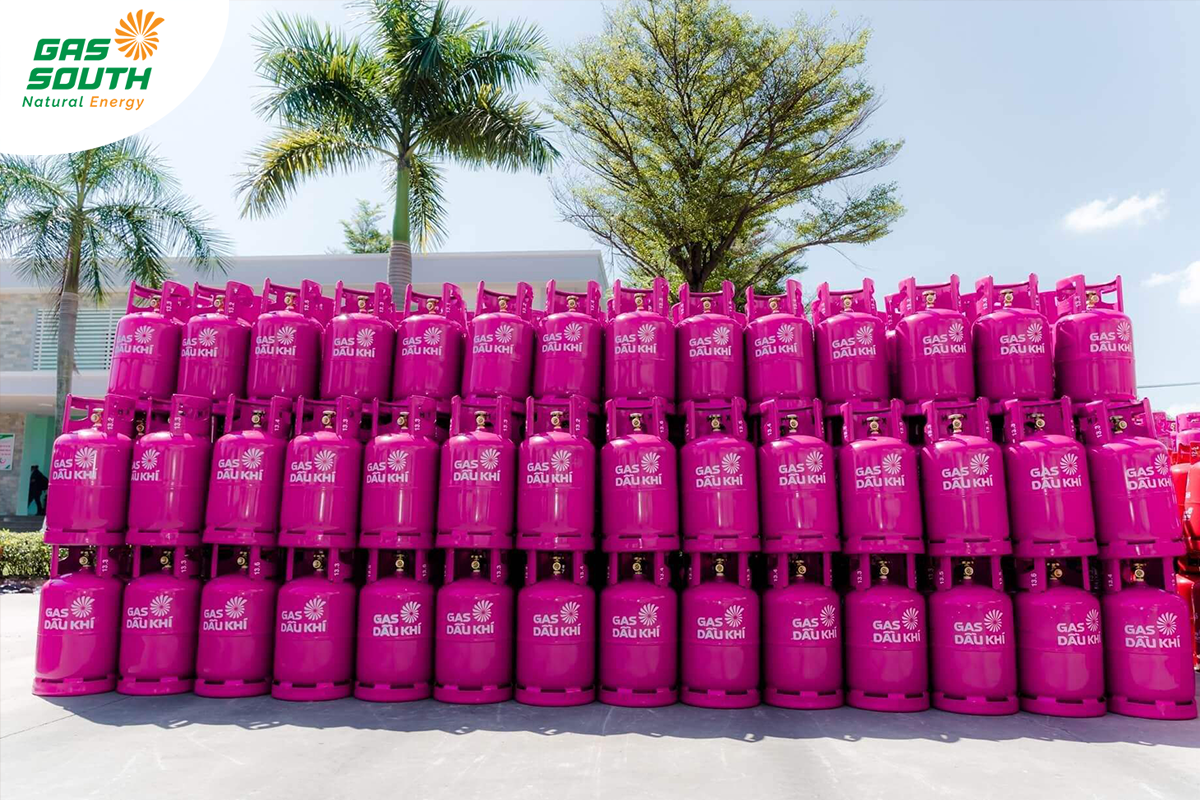A gas stove explosion can start enormous fires that harm both persons and property significantly. These flames are frequently the result of leaking gas cylinders. So, is it okay if a gas cylinder leaks? What are the indicators and reasons behind gas leaks? In the article that follows, Let's learn more about this issue with Gas South and how to repair leaky gas cylinders in the following article!
1. Does it matter if the gas cylinder leaks? Is there any risk?
The answer is yes, a gas cylinder leak is a very dangerous situation. However, with early detection, unwanted incidents can be prevented. To comprehend the dangers associated with leaking gas, it's essential to grasp the nature of the gas
Gas is essentially a mixture of hydrocarbons, primarily butane and propane combined in the right proportions. Essentially, gas has no smell, no color, is non-toxic, is heavier than air, and under normal circumstances cannot burst into flames or explode. To facilitate transportation and consumption, gas is frequently liquefied and kept in specialized containers.

Gas leaks have the potential to start large-scale fires.
When a leak occurs, the gas will quickly diffuse in the air and fly underground (because gas is heavier than air). At this point, the gas interacts with oxygen in the air to form a highly combustible combination. This mixture will ignite into a fire or even a sizable, hazardous explosion if it comes into contact with sparks or high temperatures (sparks from light switches, lighters, short circuits, etc.).
Read more: Learn about LNG: Definiton and how LNG product?
2. Signs and causes of leaking gas cylinder
The sense of smell is the easiest way to determine whether or not a gas cylinder is leaking. The gas itself is odorless, but during the manufacturing process, an additive (Mercaptan) with a distinct odor is added to help leaks be identified. However, due to the fact that gas has the ability to expand rapidly when it transforms from a liquid to a vapor, you can detect gas leaks immediately when an incident occurs.

Gas leaks can be easily recognized through their distinctive smell
Normally, there are 5 main causes of gas cylinder leaks, specifically as follows:
-
Using substandard, low-quality gas cylinders: Gas cylinders that do not guarantee quality, have tampered with exteriors (cutting, grinding), have been illegally refilled, have expired, or distributed by unauthorized businesses.
-
Gas stove connection and cylinder leakage: After a period of use, the stove connection and gas cylinder can become loose, cracked, open, twisted, or damaged by rodents, resulting in gas leakage.
-
Ignoring the gas stove while you cook: In many cases, people fail to notice that the stove is heating, which results in a charred pot, a fire that is put out by the wind or water flowing into the stove, while the gas continues to flow continually without being ignited.
-
Not locking the gas after use or erroneously locking it: Many people lock the gas cylinder valve after turning off the stove, not realizing that the gas is still in the pipeline. Additionally, there are instances where simply locking the gas cylinder without also turning off the stove results in the gas cylinder valve being improperly locked and allowing gas to flow.
-
Old and corroded gas stoves without regular cleaning: Accumulated grease, leftover food, and other residues can lead to rust and corrosion, affecting the sensitivity of the ignition component.
Read more: What are the differences between CNG, LNG and LPG?
3. How to handle a gas cylinder leak
When you detect a gas cylinder leakage, you should remain calm and follow these steps:
-
Quickly lock the gas cylinder to prevent further gas leakage.
-
Open all main doors and windows to allow the gas to disperse outside. You can also use a paper fan or cardboard to help drive the gas out.
-
If the gas leakage is severe and prevents you from breathing or if you are unable to resolve the situation on your own, promptly evacuate and call 114 for the best assistance.
Absolutely avoid turning on or off electrical devices in the house, using the phone, operating fans, igniting flames, smoking, or performing any action that can create a spark. This is because if a significant amount of gas leaks, a large explosion can occur with just a tiny spark.

Quickly lock the gas cylinder if a gas leakage is detected
4. Preventing gas cylinder leakage
To prevent gas cylinder leakage, please consider the following important points:
-
Purchase gas cylinders from reputable establishments with clear brands and origins.
-
Regularly inspect gas valves and hoses: Inspect the stove, gas cylinder and gas hoses every 6 months to 1 year, and replace gas hoses every 2 to 3 years and pressure regulator valves every 5 years.
-
Properly install the gas stove and cylinder following standards: The gas cylinder should be placed in a well-ventilated and well-circulated area. It should be positioned lower than the gas stove, with a minimum distance of 1.5 meters, and kept away from switches, sockets, and electrical devices to minimize contact with heat sources.
-
Always observe the stove during cooking: This is to prevent the stove from being accidentally turned off and to quickly detect gas leakage.
-
Properly lock the gas valve after use: Lock the cylinder valve, then wait for the flame to burn off the remaining gas in the hose before turning off the stove.
-
Regularly clean the stove and cooking area: This helps prevent rust and damage, especially around the stove body and ignition system, burner heads.
At the moment, the problem of low-quality, widely available, and counterfeit gas cylinders with well-known brand names is still a complicated one. Despite ongoing efforts by the authorities to crack down on and eradicate numerous instances of the smuggling and counterfeiting of well-known gas brands for illegal gains, this issue still exists because some consumers decide to buy counterfeit goods to save money, oblivious to the risks involved.
Gas leaks from subpar gas cylinders and accessories can be extremely dangerous. In recent years, tragic fire occurrences brought on by gas cylinder explosions have also been caused by this. Therefore, put your family's and your own safety first when using gas. Purchase gas cylinders and accessories from licensed merchants who can provide complete quality certification labels, and never use substandard products to cut costs.
In the Southern region, Southern Gas Trading Joint Stock Company - Gas South is currently a reputable producer and distributor of LPG (liquefied petroleum gas) and LPG cylinders. Gas South has developed a variety of reliable gas brands throughout the course of its more than 23 years of existence and growth, including Gas Dau Khi, VT-Gas, JP Gas, Dak Gas, and A Gas and Dang Phuoc Gas.
Read more: LPG Tanks - Things to know about Industrial Storage Tanks

Gas South is a reliable source of gas and gas cylinders.
All Gas South products are manufactured on modern production lines and are rigorously tested to ensure user safety. Customers who want to learn more about Gas South products, please contact directly for support:
-
Head office: 4th Floor, PetroVietnam Tower, No. 1 - 5 Le Duan, Ben Nghe Ward, District 1, City. Ho Chi Minh
-
Hotline: 028.3910.0108 - 028.3910.0324
-
Email: lienhe@pgs.com.vn
-
OA Zalo: https://zalo.me/gassouth18006776
Above is a quick article on the topic "Is it okay if a gas cylinder leaks?". Hopefully, after reading the article, you will know the cause of the gas cylinder leaking and know how to prevent dangerous incidents that may occur. We hope you use gas safely and responsibly!



